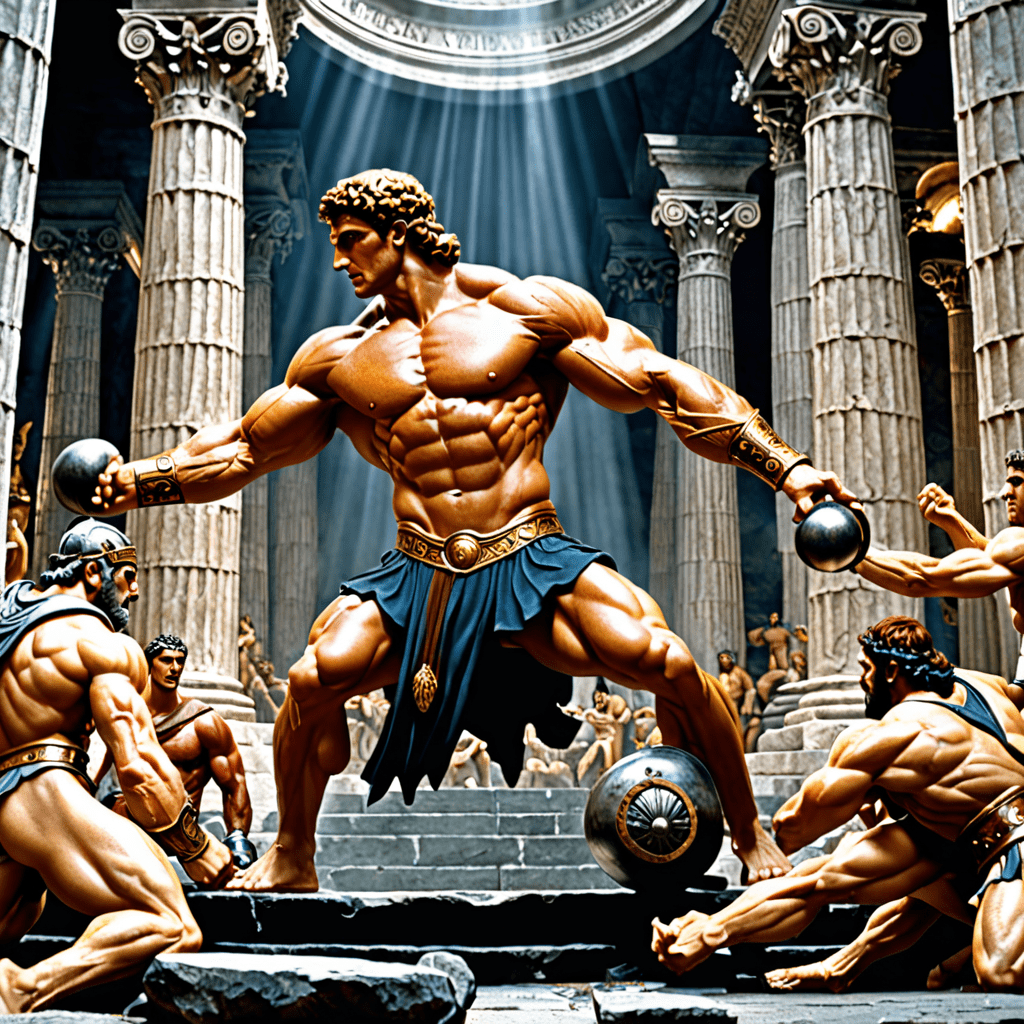Moral Myths and the Nature of Legacy: Lessons from Legends
I. Introduction
Moral myths are stories that convey ethical principles and cultural values, often through legendary figures and events. They serve as a medium through which societies communicate their ideals, shaping the moral framework within which individuals operate. The significance of legacy lies in its power to influence cultural narratives, passing down lessons learned from one generation to the next. This article aims to explore the intricacies of moral myths and the nature of legacy, analyzing how these concepts interweave to form the bedrock of cultural understanding.
II. Understanding Moral Myths
A. Definition and characteristics of moral myths
Moral myths are narratives that encapsulate the moral values and beliefs of a culture. They often feature heroes, villains, and moral dilemmas, offering resolutions that reinforce societal norms. Characteristics of moral myths include:
- Symbolism: Representing broader societal ideals.
- Timelessness: Relevant across generations.
- Emotional resonance: Evoking strong feelings that foster connections.
B. The role of moral myths in society
Moral myths function as blueprints for behavior, guiding individuals in making ethical decisions. They create a shared understanding of right and wrong, fostering social cohesion. Through these narratives, societies uphold their values and develop a collective identity.
C. Examples of well-known moral myths across cultures
Various cultures have their own moral myths, such as:
- The Epic of Gilgamesh: Explores themes of friendship, mortality, and the quest for knowledge.
- The Tale of King Arthur: Highlights ideals of chivalry, loyalty, and justice.
- Hindu Epics like the Ramayana: Illustrates duty (dharma), righteousness, and the battle between good and evil.
III. The Concept of Legacy
A. Definition of legacy in various contexts
Legacy encompasses the values, traditions, and impacts that individuals or cultures leave behind. It can be understood in several contexts:
- Personal Legacy: The memories and influences an individual imparts to their family and community.
- Cultural Legacy: The collective heritage of a society, including traditions, languages, and customs.
- Historical Legacy: The events and figures that shape the course of history and societal development.
B. How legacy is formed and transformed over time
Legacy is not static; it evolves as society changes. Historical events, cultural shifts, and technological advancements can redefine how legacies are perceived and valued. The stories we tell about our past influence future generations, shaping their understanding of identity and morality.
C. The interplay between individual actions and collective memory
Individual actions contribute to a collective memory that shapes legacy. Notable figures, through their deeds, often become the embodiment of moral myths. Their stories are retold, adapted, and celebrated, influencing societal values and ethics.
IV. Legendary Figures and Their Moral Myths
A. Exploration of key legendary figures
Legendary figures such as Hercules, King Arthur, and Nelson Mandela serve as moral archetypes within their cultural contexts. Each embodies distinct virtues that resonate with societal aspirations.
B. Analysis of the moral lessons embodied by these figures
– Hercules: Represents strength, perseverance, and the triumph over adversity through his Twelve Labors.
– King Arthur: Embodies ideals of chivalry, justice, and leadership through his quest for the Holy Grail.
– Nelson Mandela: Symbolizes resilience, forgiveness, and the fight against oppression, inspiring global movements for justice.
C. The impact of these legends on societal values and ethics
The stories of these legendary figures have profoundly influenced societal values. They serve as benchmarks for ethical behavior, encouraging individuals to aspire to similar ideals in their own lives.
V. The Dynamics of Moral Lessons in Legends
A. How stories evolve to reflect contemporary values
As society evolves, so too do the moral lessons within legends. Stories are often reinterpreted to align with current values, highlighting the malleability of moral myths.
B. The role of storytelling in preserving and altering moral lessons
Storytelling is a powerful tool for preserving cultural narratives. Through oral traditions, literature, and media, moral myths are passed down, sometimes evolving to reflect contemporary issues and values.
C. Case studies of legends that have changed over time
– The Odyssey: Initially a tale of adventure, it is now often interpreted as a commentary on homecoming and identity.
– The Legend of Robin Hood: From a mere outlaw to a symbol of social justice, reflecting modern views on inequality.
VI. The Role of Cultural Context in Shaping Legacy
A. Influence of cultural backgrounds on the interpretation of moral myths
Cultural backgrounds significantly influence how moral myths are interpreted. Different societies may emphasize various aspects of a legend based on their unique values and challenges.
B. Variations in legacy perception across different societies
The perception of legacy varies widely; for instance, figures like Columbus may be viewed as a hero in some cultures while regarded as a villain in others due to their actions’ implications.
C. Examples of cultural reinterpretation of legends
– The reinterpretation of Mulan: From a tale of loyalty and honor to a narrative emphasizing female empowerment and independence.
– The story of the Trojan War: Reexamined in contemporary contexts to explore themes of conflict, betrayal, and resilience.
VII. The Psychological Impact of Moral Myths
A. How moral myths influence individual behavior and decision-making
Moral myths play a crucial role in shaping individual behavior. They provide frameworks for understanding complex ethical dilemmas, guiding decision-making processes.
B. The role of heroes and legends in shaping identity
Heroes and legends serve as role models, influencing personal identity and aspirations. Individuals often look to these figures for inspiration, shaping their values and life choices.
C. Psychological theories related to moral lessons and legacy
Psychological theories such as social identity theory and narrative psychology explore how stories and legends shape human behavior, identity, and moral reasoning.
VIII. Critique of Moral Myths
A. Limitations and potential dangers of adhering too closely to moral myths
While moral myths serve important functions, strict adherence can lead to dogmatism and a lack of critical thinking. They may oversimplify complex moral issues, presenting black-and-white solutions in nuanced situations.
B. Discussion of counter-narratives and alternative legacies
Counter-narratives challenge dominant moral myths, offering alternative perspectives that broaden understanding. Recognizing these narratives is essential for a comprehensive understanding of morality and legacy.
C. The importance of critical thinking in evaluating moral myths
Critical thinking is vital in assessing moral myths. Engaging with these narratives thoughtfully allows individuals to discern their relevance and applicability in contemporary society.
IX. Lessons for Contemporary Society
A. How moral myths can inform modern ethical dilemmas
Moral myths provide valuable insights into addressing modern ethical dilemmas, offering frameworks for navigating complex social issues.
B. The relevance of legendary lessons in today’s world
The lessons embodied by legendary figures remain pertinent, reminding us of the values we aspire to uphold in our communities.
C. Suggestions for integrating moral myths into personal and societal narratives
– Engage with moral myths through literature, film, and discussions.
– Reflect on personal values in light of these narratives.
– Encourage storytelling that includes diverse perspectives.
X. Conclusion
Understanding moral myths and their legacies is essential for navigating our contemporary world. These narratives not only reflect our past but also shape our future,



